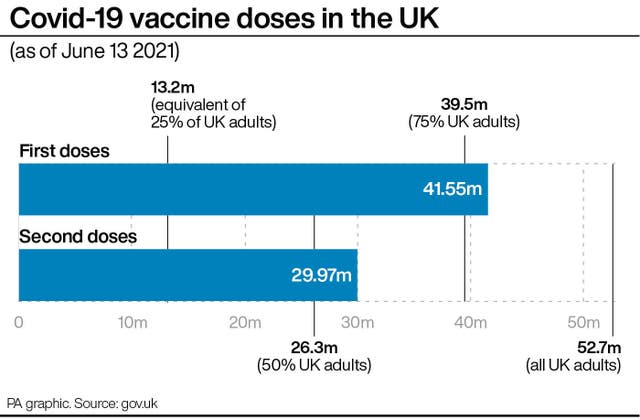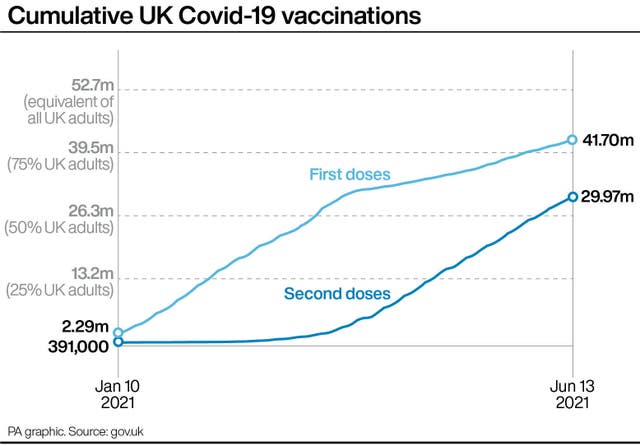Lockdown restrictions: What is changing, what is staying the same and why?
What has changed following Boris Johnson’s announcement, what will stay the same and why?

Although the Government has agreed to remain at Step 3 of the road map for easing coronavirus restrictions for four more weeks, there will be a limited relaxation of rules in some areas sooner than July 19.
But what has changed following Boris Johnson’s announcement, what will stay the same and why?
– What is the biggest change?
The cap of 30 guests for wedding ceremonies and receptions will be lifted, the Prime Minister has confirmed.
As with current rules for funerals, the number of attendees will be determined by how many people the venue can safely accommodate with social distancing measures in place.
However, food and drink must be ordered, served and consumed by guests seated at a table, and dancing indoors is still not permitted, except for the couple’s first dance.
Care home residents will be permitted to stay overnight with friends and family from Monday without needing to quarantine for 14 days on return to their residences.

– Has there been an update on vaccines?
It was also confirmed that those aged 40 and over will now have their second doses brought forward from the planned 12-week interval to eight weeks.
This was previously announced for the over-50s and the clinically vulnerable, who have been offered their second dose earlier in a bid to dampen the impact of the Delta variant.
– What is staying the same?
Although the delay of the June 21 lifting restrictions will come as a blow to many, it does not mean the Government will now go backwards through the road map.
England will remain at Step 3 for a further four weeks, with the rule of six set to continue indoors, alongside limits on numbers for sports events, pubs and cinemas.
Working from home where possible will continue to be advised, nightclubs will stay shuttered and legal limits on social contact will remain in place.

– Why is Step 4 being delayed?
Modelling suggests that had the easing of lockdown on June 21 not been delayed, hospital admissions could have reached the heights of the first peak in March 2020.
The Delta variant, first identified in India, is believed to be between 40% and 80% more transmissible than the Alpha strain, while there are around 8,000 new cases a day, the highest since February.
Downing Street said cases are increasing by around 64% each week and this is being followed by hospital admissions beginning to rise.
Official data showed the number of people in England being admitted to hospitals increasing by around 50% per week, with this figure being as high as 61% in the north-west.
Experts feared that going ahead with Step 4 would put unsustainable pressure on the health service, leading Mr Johnson to delay this step for four weeks until July 19.





